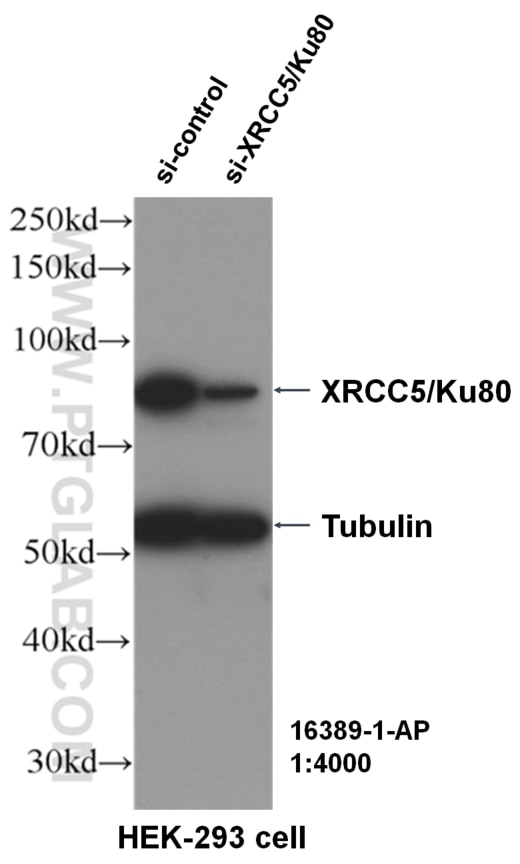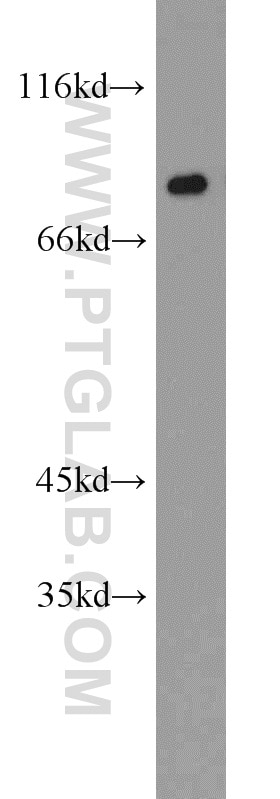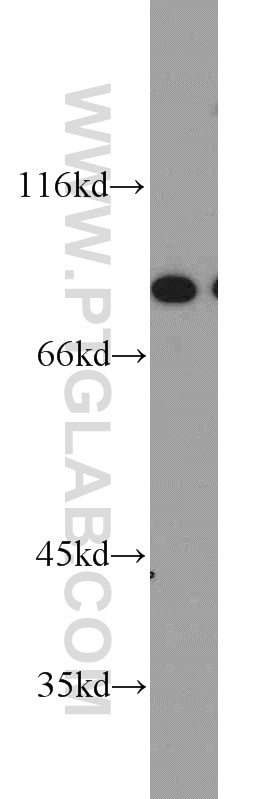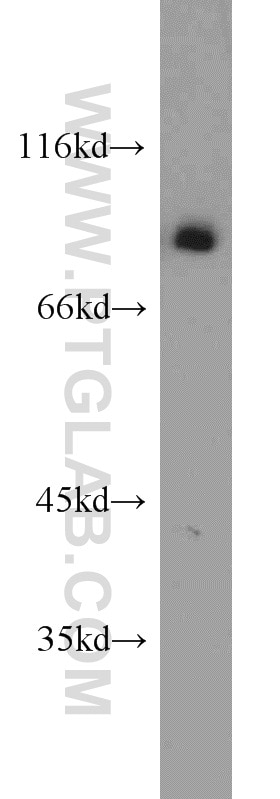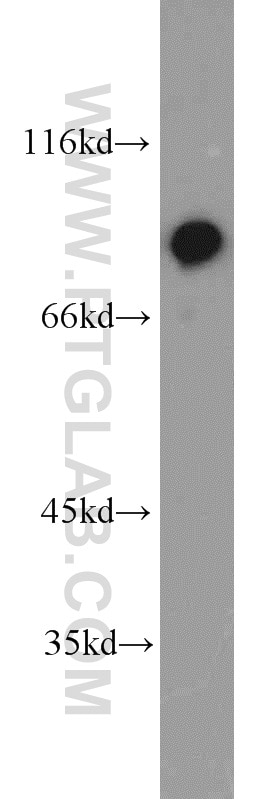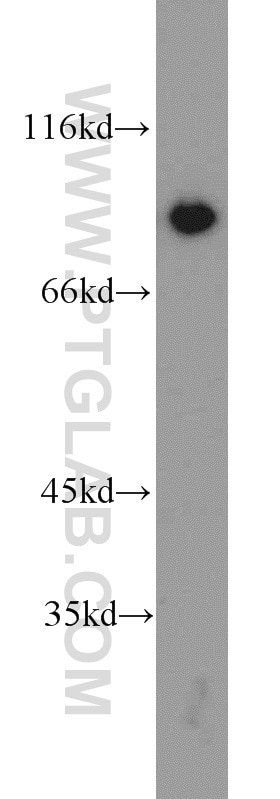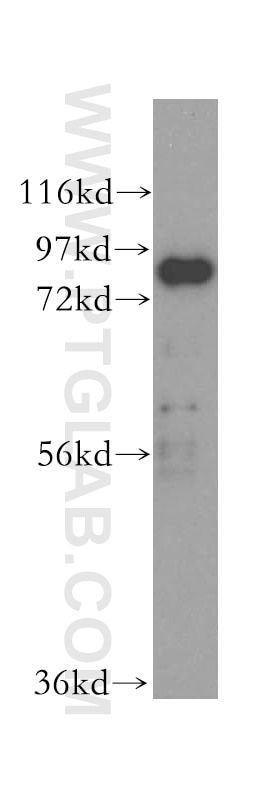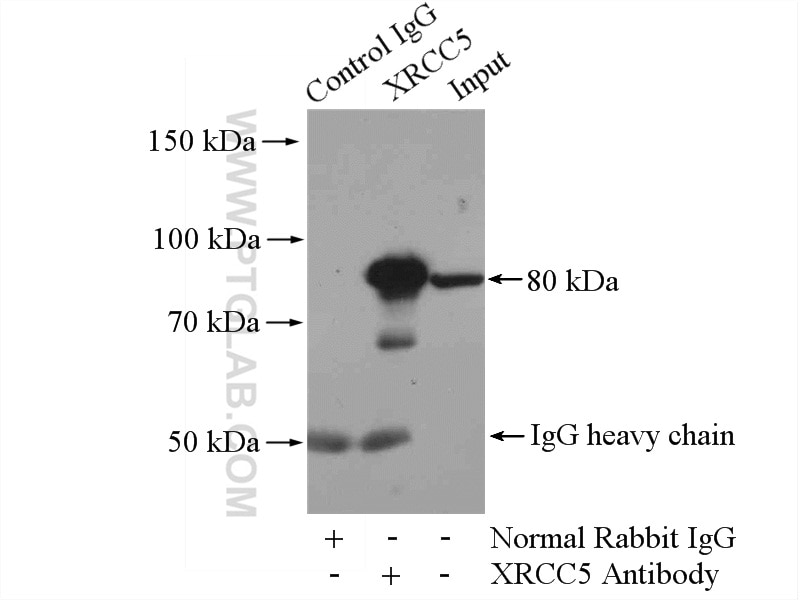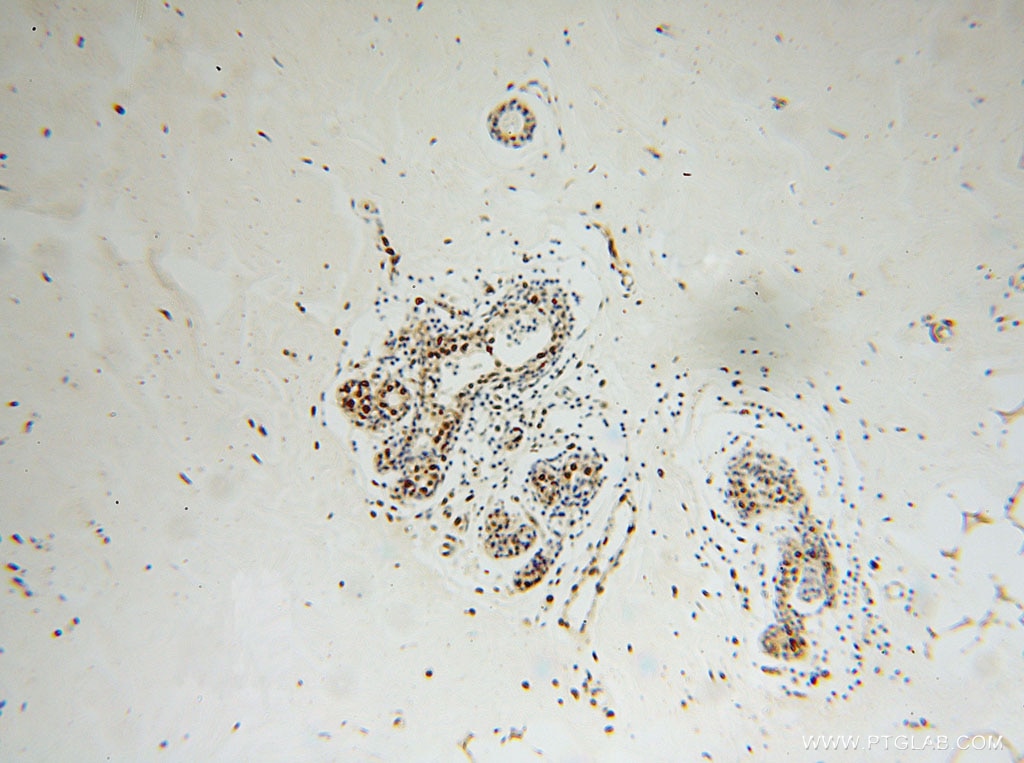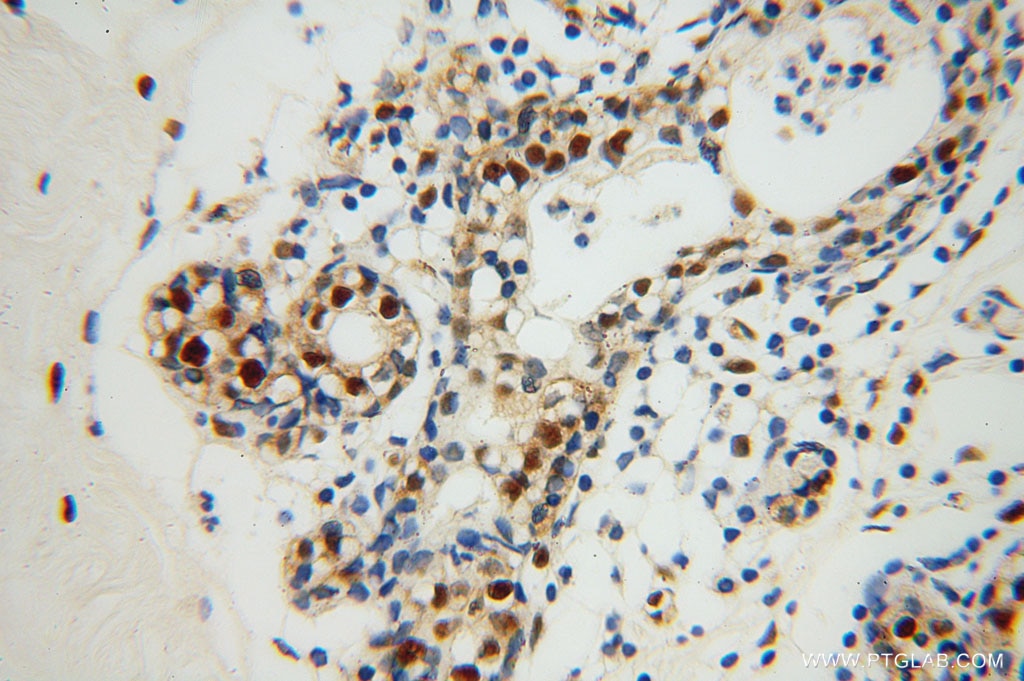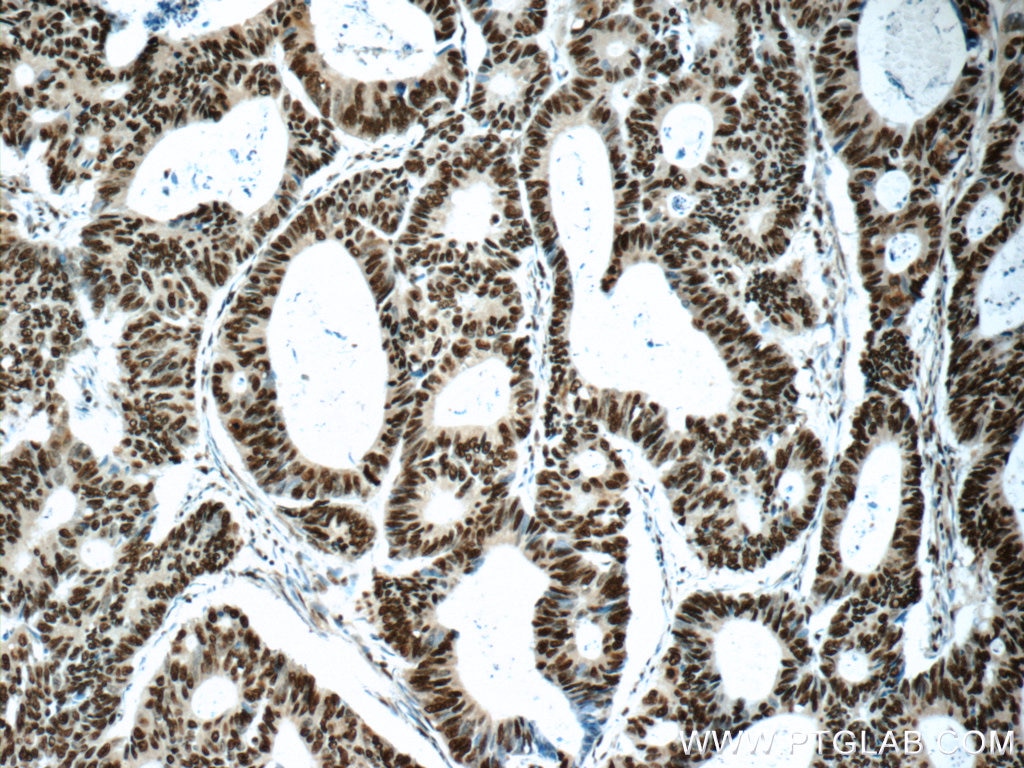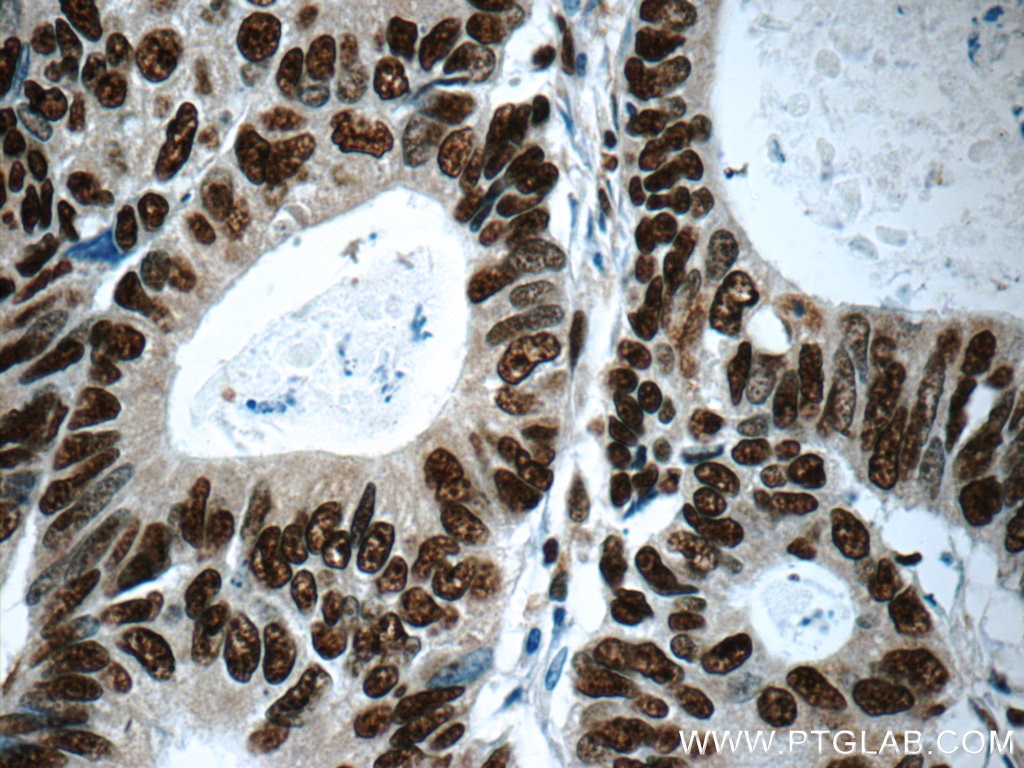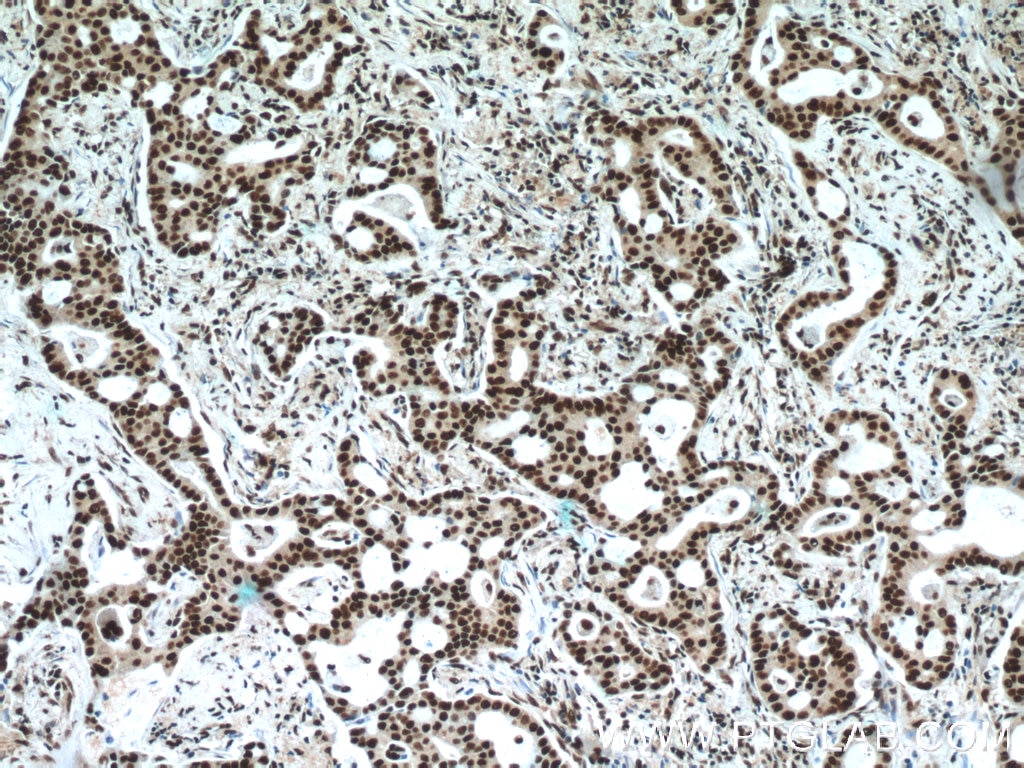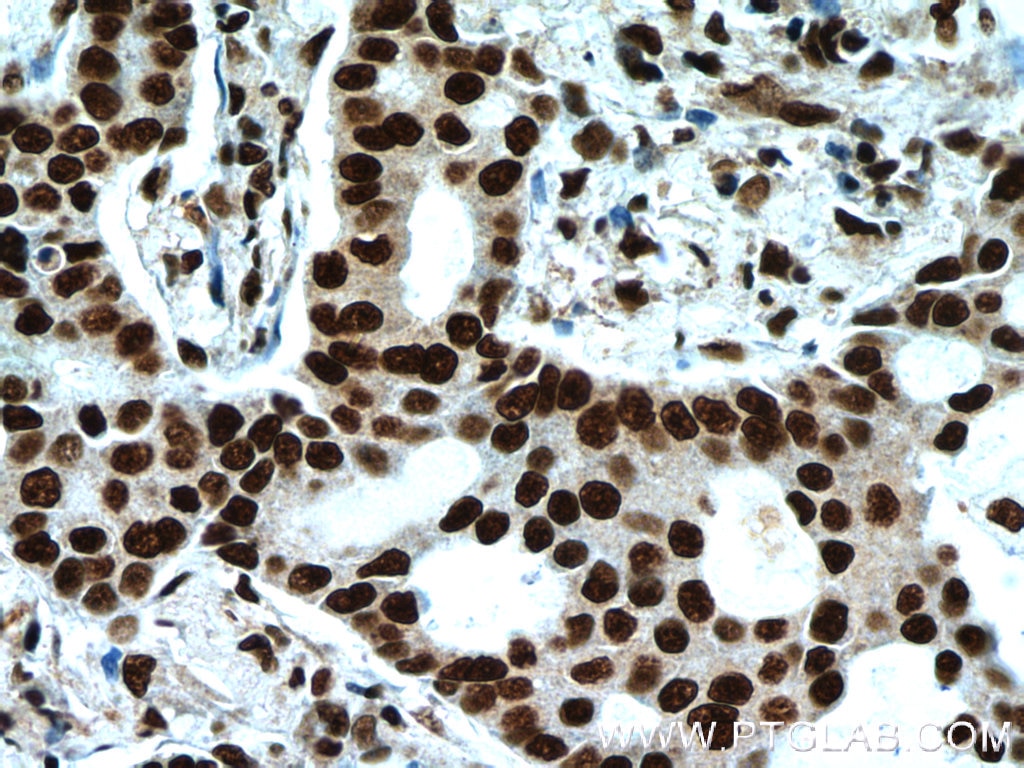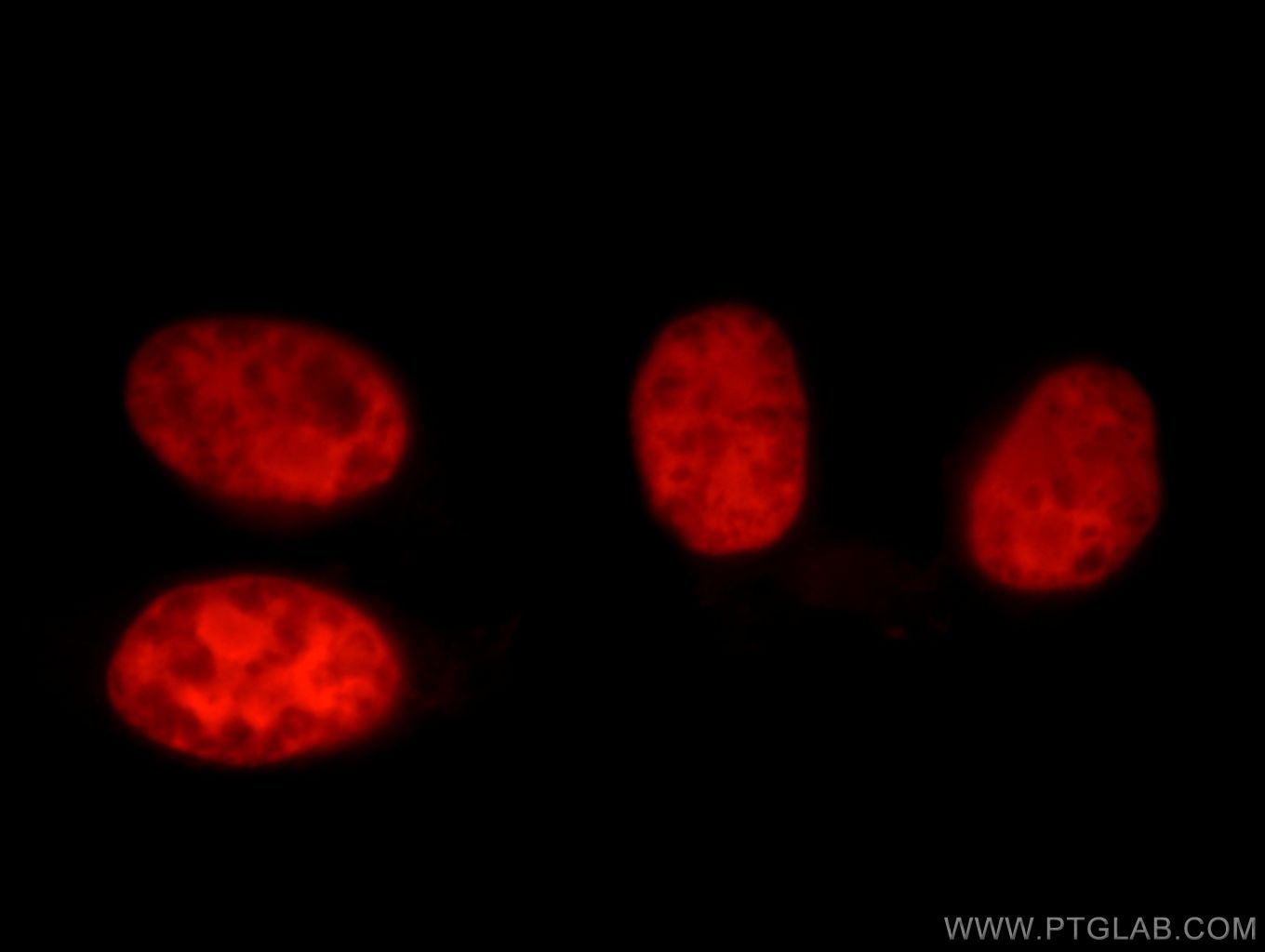- Featured Product
- KD/KO Validated
XRCC5/Ku80 Polyklonaler Antikörper
XRCC5/Ku80 Polyklonal Antikörper für IF, IHC, IP, WB, ELISA
Wirt / Isotyp
Kaninchen / IgG
Getestete Reaktivität
human, Maus und mehr (1)
Anwendung
WB, IP, IHC, IF, CoIP, ChIP, ELISA
Konjugation
Unkonjugiert
Kat-Nr. : 16389-1-AP
Synonyme
Galerie der Validierungsdaten
Geprüfte Anwendungen
| Erfolgreiche Detektion in WB | HepG2-Zellen, A431-Zellen, HEK-293-Zellen, HeLa-Zellen, humanes Lebergewebe, K-562-Zellen |
| Erfolgreiche IP | HEK-293-Zellen |
| Erfolgreiche Detektion in IHC | humanes Kolonkarzinomgewebe, humanes Lungenkarzinomgewebe Hinweis: Antigendemaskierung mit TE-Puffer pH 9,0 empfohlen. (*) Wahlweise kann die Antigendemaskierung auch mit Citratpuffer pH 6,0 erfolgen. |
| Erfolgreiche Detektion in IF | HepG2-Zellen |
Empfohlene Verdünnung
| Anwendung | Verdünnung |
|---|---|
| Western Blot (WB) | WB : 1:500-1:2000 |
| Immunpräzipitation (IP) | IP : 0.5-4.0 ug for 1.0-3.0 mg of total protein lysate |
| Immunhistochemie (IHC) | IHC : 1:20-1:200 |
| Immunfluoreszenz (IF) | IF : 1:20-1:200 |
| It is recommended that this reagent should be titrated in each testing system to obtain optimal results. | |
| Sample-dependent, check data in validation data gallery | |
Veröffentlichte Anwendungen
| KD/KO | See 2 publications below |
| WB | See 25 publications below |
| IHC | See 2 publications below |
| IF | See 6 publications below |
| IP | See 5 publications below |
| CoIP | See 1 publications below |
| ChIP | See 1 publications below |
Produktinformation
16389-1-AP bindet in WB, IP, IHC, IF, CoIP, ChIP, ELISA XRCC5/Ku80 und zeigt Reaktivität mit human, Maus
| Getestete Reaktivität | human, Maus |
| In Publikationen genannte Reaktivität | human, Hausschwein, Maus |
| Wirt / Isotyp | Kaninchen / IgG |
| Klonalität | Polyklonal |
| Typ | Antikörper |
| Immunogen | XRCC5/Ku80 fusion protein Ag9454 |
| Vollständiger Name | X-ray repair complementing defective repair in Chinese hamster cells 5 (double-strand-break rejoining) |
| Berechnetes Molekulargewicht | 732 aa, 83 kDa |
| Beobachtetes Molekulargewicht | 80-83 kDa |
| GenBank-Zugangsnummer | BC019027 |
| Gene symbol | XRCC5 |
| Gene ID (NCBI) | 7520 |
| Konjugation | Unkonjugiert |
| Form | Liquid |
| Reinigungsmethode | Antigen-Affinitätsreinigung |
| Lagerungspuffer | PBS mit 0.02% Natriumazid und 50% Glycerin pH 7.3. |
| Lagerungsbedingungen | Bei -20°C lagern. Nach dem Versand ein Jahr lang stabil Aliquotieren ist bei -20oC Lagerung nicht notwendig. 20ul Größen enthalten 0,1% BSA. |
Hintergrundinformationen
There are at least two pathways for eukaryotes to repair DNA double-strand breaks: homologous recombination and nonhomologous end joining(NHEJ). The core NHEJ machinery includes XRCC4, DNA ligase IV and the DNA-dependent protein kinase complex, which consists of the DNA end-binding XRCC5/XRCC6 heterodimer and the catalytic subunit PRKDC. The heterdimer of XRCC5/XRCC6 enhanced teh affinity of the catalytic subunit PRKDC to DNA by 100-fold. Once the XRCC5/6 dimer association with NAA15, it can bind to the osteocalcin promoter and activate osteocalcin expression. The XRCC5/6 dimer acts as a negative regulator of transcription when together with APEX1. Some publised papers indicated that the MW of XRCC5 is 86kDa, while more papers suggested that XRCC5 is a 80kDa protein, as it was firstly introducted in publication. Thus, Ku80 and Ku86 are the same protein.
Protokolle
| Produktspezifische Protokolle | |
|---|---|
| WB protocol for XRCC5/Ku80 antibody 16389-1-AP | Protokoll herunterladen |
| IHC protocol for XRCC5/Ku80 antibody 16389-1-AP | Protokoll herunterladen |
| IF protocol for XRCC5/Ku80 antibody 16389-1-AP | Protokoll herunterladen |
| IP protocol for XRCC5/Ku80 antibody 16389-1-AP | Protokoll herunterladen |
| Standard-Protokolle | |
|---|---|
| Klicken Sie hier, um unsere Standardprotokolle anzuzeigen |
Publikationen
| Species | Application | Title |
|---|---|---|
Immunity Cytoplasmic DNA sensing by KU complex in aged CD4+ T cell potentiates T cell activation and aging-related autoimmune inflammation. | ||
Oncogene UBE2S, a novel substrate of Akt1, associates with Ku70 and regulates DNA repair and glioblastoma multiforme resistance to chemotherapy. | ||
Phytomedicine Kaempferol inhibits non-homologous end joining repair via regulating Ku80 stability in glioma cancer | ||
J Mater Chem B Hollow PtCo alloy nanospheres as a high-Z and oxygen generating nanozyme for radiotherapy enhancement in non-small cell lung cancer | ||
FEBS J Radiation resistance of cancer cells caused by mitochondrial dysfunction depends on SIRT3-mediated mitophagy | ||
Oncotarget Sensitization of tamoxifen-resistant breast cancer cells by Z-ligustilide through inhibiting autophagy and accumulating DNA damages. |
